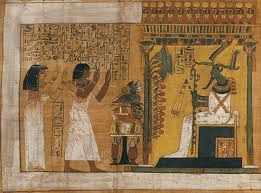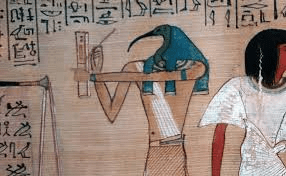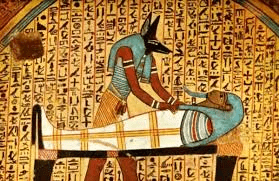Word used for an Egyptian king
pharaoh
Evidence created after the time of the event
secondary source
What does BC and BCE stand for?
Before Christ and Before Common Era
How was the brain removed?
With a hook through the nose

Is this a primary or a secondary source?
Primary source
A piece of evidence created at the actual time of the period being studied by the historian
chronology
The form of writing in pictures that Egyptians used
hieroglyphics
What does CE stand for?
Common Era
What was the body wrapped in?
linen
Who is this God?
Thoth
The God of death
Anubis
A skilled craftman
artisan
What language is AD in?
Latin
What was done with the organs?
They were removed and placed in canopic jars
Who is this God?

Anubis
Order of events based on when they occurred
chronology
The liquid used to dry out the body
natron
What does AD stand for?
Anno Domini
Which organ was not removed from the body?
the heart
What is happening in this scene?
The weighing of the heart ceremony
Someone who preserves bodies
embalmber
What is the correct order of the Egyptian social heirarchy?
Pharaohs, Nobles, Professionals / Merchants, Artisans, Slaves
Name a female Egyptian pharaoh. Double points if you name two.
Hatshepsut and Cleopatra
Why was the heart left in the body?
The ancient Egyptians believed it was needed for the weighing of the heart ceremony to be weighed against a feather.
What do the Egyptian funerary customs tell us about the ancient Egyptian's beliefs about the afterlife?
Any of the below:
- that they need their bodies preserved so the soul can return
- they need their heart in the body so it can be weighed
- they need spells in the afterlife
- they need possessions in the afterlife and they will have access to the things buried with them